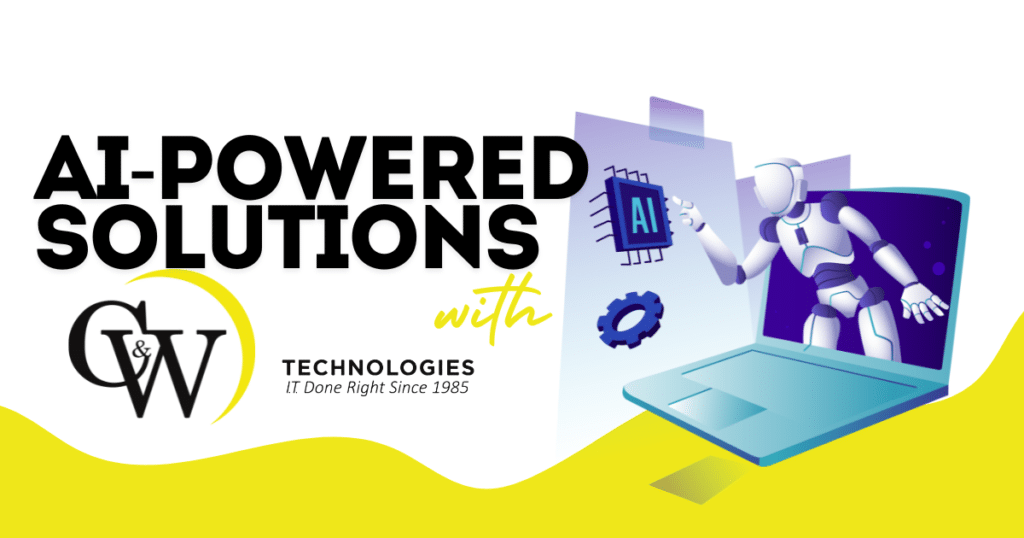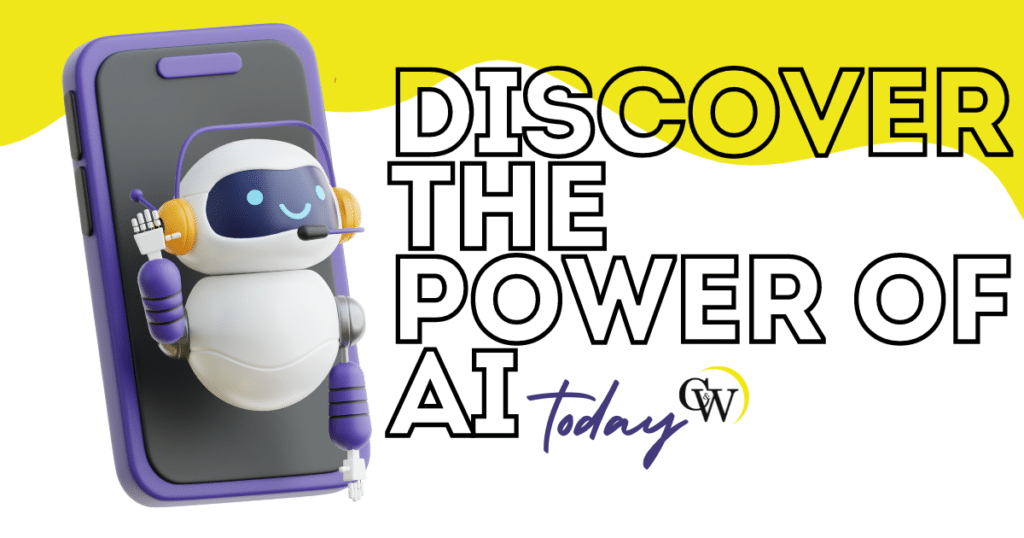The Future of Work: How AI Can Uplift the Middle Class
The Future of Work: How AI Could Rebuild the Middle Class
Artificial Intelligence (AI) is at the forefront of technological advancements, with implications that could reshape the labor market and potentially revitalize the middle class. David Autor, an economist at MIT, has been vocal about both the challenges and opportunities that AI presents for the workforce. This blog delves into Autor’s insights on how AI could impact the middle class and what steps can be taken to ensure it benefits a broad spectrum of workers and you can read his blog here.
The Current Landscape of AI and Labor
Over the past few decades, technological advancements have primarily benefited high-income, college-educated workers, contributing to job polarization and increasing income inequality. Middle-skill jobs, which historically supported the middle class, have been most affected by automation and computerization. Tasks that were once performed by human workers are now increasingly handled by machines, leading to a reduction in demand for these roles.
Autor emphasizes that while AI has the potential to exacerbate these trends, it also offers a unique opportunity to reverse them. Unlike previous waves of automation, which primarily replaced manual and routine cognitive tasks, AI can complement human labor by taking over tasks that require data analysis, pattern recognition, and prediction. This allows workers to focus on more complex, creative, and interpersonal aspects of their jobs.
AI as a Tool for Democratizing Work
To harness the potential of AI to rebuild the middle class, it is crucial to implement policies that democratize access to AI technologies and the benefits they bring. Autor suggests several strategies to achieve this:
- Investment in Education and Training: Providing workers with the skills needed to thrive in an AI-enhanced job market is essential. This includes not only technical skills related to AI and data analysis but also soft skills such as critical thinking, problem-solving, and adaptability. Continuous learning and upskilling should be encouraged to help workers stay relevant in the changing job landscape.
- Improving Job Quality: Ensuring that new jobs created by AI are well-paying and offer job security is crucial for rebuilding the middle class. This involves enhancing working conditions, providing benefits, and ensuring fair wages. Policies should focus on creating high-quality jobs that offer stability and growth opportunities.
- Modernizing Labor Laws: Updating labor regulations to reflect the realities of the modern workforce is necessary to protect workers’ rights and promote fair employment practices. This includes addressing issues related to gig work, remote work, and the changing nature of employment relationships.
- Enhancing Innovation: Increasing investment in research and development can drive technological advancements while ensuring that the benefits are widely distributed across society. Public and private sector partnerships can help foster innovation and create a conducive environment for the development and deployment of AI technologies.
Learning from the Industrial Revolution
Autor draws parallels between the current AI revolution and the Industrial Revolution, which also brought significant changes to the labor market. During the Industrial Revolution, many skilled artisans lost their jobs to machines, leading to social upheaval. However, new manufacturing jobs eventually emerged, requiring different skills and contributing to the growth of the middle class.
Similarly, the transition to an AI-driven economy may involve initial disruptions and challenges. However, with the right strategies in place, it is possible to create new job opportunities that can support a thriving middle class. The key is to ensure that workers are equipped with the skills needed to adapt to these changes and that the benefits of AI are shared broadly across society.
The Role of Policy and Institutions
For AI to effectively rebuild the middle class, there needs to be a concerted effort from policymakers, educators, and employers. Autor and his colleagues recommend several policy interventions to achieve this:
Skills and Training Programs
Governments and educational institutions should invest in training programs that equip workers with the skills needed for AI-related jobs. This includes both formal education and vocational training programs that focus on technical skills and digital literacy.
Job Quality Improvements
Policies should aim to improve job quality by ensuring fair wages, job security, and benefits. This includes modernizing labor laws to protect gig and freelance workers, who are often excluded from traditional employment protections.
Research and Development Funding
Increasing funding for research and development can drive innovation and create new job opportunities. Public and private sector partnerships can help foster a culture of innovation and ensure that AI technologies are developed and deployed in a way that benefits society as a whole.
Tax and Regulatory Reforms
Rebalancing taxes on capital and labor can help ensure that the benefits of AI are shared more equitably. This includes implementing corporate income taxes that apply equally to all businesses and reducing tax incentives that favor automation over human labor.
The Future of AI and Work
The future of AI is closely tied to the future of work. Autor emphasizes that while AI has the potential to replace certain tasks, it also has the ability to create new opportunities and improve job quality. By focusing on strategies that democratize access to AI and its benefits, it is possible to rebuild the middle class and create a more equitable and prosperous economy.
AI can help reduce barriers to entry for less-skilled workers by taking over routine tasks and allowing them to focus on more complex and value-added activities. This can create new job opportunities in areas such as healthcare, education, and creative industries, where human skills are still in high demand.
What is an example of AI in business?
One example of AI in business is the use of chatbots for customer service. Chatbots are computer programs that use natural language processing and machine learning to understand and respond to customer inquiries in real time. Companies can integrate chatbots into their websites or messaging platforms, allowing customers to interact with them just as they would a human representative.
This technology has greatly improved customer service efficiency by handling routine inquiries and freeing up human agents to focus on more complex issues. It also provides businesses with valuable data on customer interactions, which can be used to improve products and services.
AI-powered chatbots can operate 24/7, providing round-the-clock support for customers without the need for additional staff. This can lead to cost savings for businesses while improving the overall customer experience.
The Importance of Continuous Learning
As AI continues to evolve, continuous learning and upskilling will become increasingly important. Workers need to be encouraged to engage in lifelong learning and to develop the skills needed to adapt to changing job requirements. This includes not only technical skills related to AI and data analysis but also soft skills such as critical thinking, problem-solving, and communication.
Educational institutions and employers play a crucial role in facilitating continuous learning. They need to provide access to training programs, resources, and support to help workers stay relevant in the changing job landscape. This includes offering flexible learning options, such as online courses and on-the-job training, that allow workers to upskill while continuing to work.
Embracing AI for a Better Future
AI has the potential to transform the labor market and rebuild the middle class. However, this will require a concerted effort from policymakers, educators, employers, and workers. By focusing on strategies that democratize access to AI and its benefits, it is possible to create a more equitable and prosperous economy.
The key is to ensure that workers are equipped with the skills needed to thrive in an AI-driven job market and that the benefits of AI are shared broadly across society. This includes investing in education and training, improving job quality, modernizing labor laws, and enhancing innovation.
As Autor emphasizes, the future of AI is closely tied to the future of work. By harnessing the potential of AI and implementing forward-thinking policies, it is possible to create a more inclusive and prosperous economy that benefits everyone.
Revolutionizing C&W Technologies with Artificial Intelligence: A New Era of Innovation
At C&W Technologies, we are at the forefront of leveraging Artificial Intelligence to revolutionize our service offerings and drive a new era of innovation. By harnessing advanced AI algorithms and machine learning capabilities, we are able to analyze vast amounts of data, identify patterns, and create solutions that enhance efficiency and effectiveness across various sectors.
Our commitment to adopting cutting-edge technology not only improves our operational processes but also empowers our clients to achieve their goals in an increasingly competitive landscape. We believe that the integration of AI will open up new possibilities, enabling us to offer tailored services that meet the evolving needs of our customers and contribute to sustainable growth.
By integrating AI into our operations, we enhance efficiency, optimize processes, and deliver exceptional value to our clients. Whether you are looking to streamline your business operations, gain actionable insights from data, or create tailored experiences for your customers, C&W Technologies has the expertise and cutting-edge tools to help you achieve your goals.
Contact us today to discover how our innovative AI-driven services can transform your business operations, enhance efficiency, and propel you into the future of technology.
Our company is dedicated to understanding your unique needs and providing tailored solutions that leverage the latest advancements in AI, ensuring you stay ahead of the competition and unlock new growth opportunities. Don’t miss out on the chance to revolutionize your business, Contact us today!
Frequently Asked Questions (FAQs)
What are some AI applications in business?
AI applications in business range from customer service chatbots and virtual assistants to sophisticated data analysis and predictive analytics. Businesses leverage AI to improve operational efficiency, enhance customer experiences, and make data-driven decisions. For example, AI can help analyze patterns in consumer data to optimize marketing strategies or streamline supply chain operations with predictive analytics.
How does AI help analyze data?
AI employs machine learning algorithms and statistical models to analyze vast datasets quickly and accurately. These AI systems can identify trends, uncover insights, and generate actionable recommendations, allowing businesses to make informed decisions and stay ahead of competitors. This capability is especially crucial in sectors like finance, healthcare, and retail, where data-driven decision-making is key.
What role does AI play in data management?
AI enhances data management by automating routine tasks, improving data quality, and enabling advanced data analysis. AI-driven tools can help organize, index, and maintain data, ensuring it is accessible and usable for various business processes. This results in increased efficiency and better utilization of data assets.
What are the ethical considerations of deploying AI solutions?
Ethical considerations in AI involve issues around privacy, bias, accountability, and transparency. Responsible AI practices ensure that AI applications respect user privacy, are free of biases, and operate transparently. Companies must develop frameworks to address these ethical challenges to build trust and comply with regulatory standards.
How is AI transforming human resources?
AI is revolutionizing human resources (HR) by automating repetitive tasks, enhancing recruitment processes, and providing data-driven insights into employee performance and satisfaction. AI-powered tools can screen resumes, predict employee turnover, and recommend personalized career development plans, making HR processes more efficient and effective.
What urgent challenges does AI face?
One of the urgent challenges AI faces includes addressing biases in algorithms that can perpetuate inequalities. Another challenge is ensuring data privacy and security in AI applications. Additionally, there is a growing need to develop robust regulatory frameworks that guide ethical AI deployment and use.
How can AI generate code?
Generative AI models, like Codex from OpenAI, can generate code based on natural language descriptions. These models are trained on vast amounts of source code and can write, debug, and optimize code, significantly speeding up software development processes and aiding programmers in their tasks.
How is AI used in managing the supply chain?
AI optimizes supply chain management by predicting demand, optimizing inventory levels, and identifying potential disruptions. AI systems can analyze trends and historical data to forecast future demand accurately, streamline logistics, and enhance supply chain resilience.
What are the benefits of AI built for specific consumer needs?
AI built for specific consumer needs can offer tailored experiences, personalized recommendations, and real-time support. By analyzing consumer data, AI systems can adapt to individual preferences, improving customer satisfaction and loyalty.
What is responsible AI and why is it important?
Responsible AI refers to the ethical and accountable deployment of AI technologies, ensuring they are used in ways that are fair, transparent, and respectful of user rights. It is crucial to build public trust, avoid harms related to bias and discrimination, and ensure compliance with legal and ethical standards.
What contributions do co-founders bring in AI startups?
Co-founders in AI startups typically bring a mix of technical expertise, business acumen, and strategic vision. They are instrumental in driving innovation, securing funding, and navigating the challenges of bringing AI-driven products to market.
What is the role of generative AI in emerging technology?
Generative AI plays a significant role in emerging technologies by creating new content, such as text, images, and music, and by offering advanced capabilities like automated coding and creative design. It expands the possibilities of what machines can achieve, driving innovation across various industries.
How do digital technologies complement AI?
Digital technologies, such as IoT, cloud computing, and big data analytics, complement AI by providing the infrastructure and data needed for AI applications to function effectively. Together, they enable more sophisticated and scalable solutions that can transform industries.
How do industry leaders view AI?
Industry leaders view AI as a transformative technology that can drive innovation, improve efficiency, and open new opportunities. Many are investing heavily in AI research and development to stay competitive and to harness AI’s potential for growth and advancement.
How does AI enhance the customer journey?
AI enhances the customer journey by providing personalized interactions, predicting customer needs, and offering real-time solutions. From initial engagement to post-purchase support, AI can create a seamless and satisfying experience for customers.
What are some AI applications for good?
AI applications for good include using AI for healthcare diagnostics, environmental monitoring, and disaster response. These applications aim to improve societal outcomes, address global challenges, and enhance the quality of life.
What is the significance of AI built for business applications?
AI built for business applications can streamline operations, reduce costs, and enhance decision-making processes. By leveraging AI, businesses can automate repetitive tasks, gain valuable insights from data, and improve overall productivity and competitiveness.



